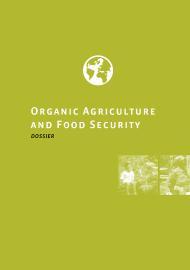Executive Summary
While affluent regions and social classes struggle with surplus production and surplus consumption, close to one fifth of the global population lives in a state of constant undernourishment. In many regions subsistence production of basic foods is restricted by lack of access to capital, land and water. At the same time, more favored growing areas within the same countries are used for commercial production of specialty crops or animal feed destined for export to affluent regions. Thus the major constraints to achieving universal food security, now enshrined as one of the Millennium Development Goals (MDGs) are found in social, economic and political conditions more than in problems regarding productive capacity. The main solutions to food security problems will therefore be found in social, economic and political improvements.
Nevertheless, demand for food will increase in the future, and choices about production methods do also influence access to food, so there are reasons why production issues need to be addressed.
This dossier highlights the relevance of organic agriculture in helping meet food security:
- The main strategy for increasing both food production and access to food should be through farmers in developing countries increasing production and productivity.
- Conventional agriculture may provide short-term gains in production, but in most cases it is not sustainable in the long term, undermines the viability of small farm units and does not guarantee safe food.
- In particular, conventional production methods are inappropriate for disadvantaged farming communities and are thus not a suitable solution for many of those who face food shortages.
- Organic production has the potential to produce sufficient food of a high quality. It is, as we demonstrate here, particularly appropriate for those rural communities that are most exposed to food shortages.
- Organic agriculture contributes to food security through a combination of many features, most notably by:
- Increasing yields in low-input areas
- Conserving bio-diversity and natural resources on the farm and in the surrounding area
- Increasing farmers’ incomes and/or reducing costs
- Producing safe and varied food
- Being sustainable in the long term
Organic agriculture should be an integral part of any agricultural policy aiming for food security.
